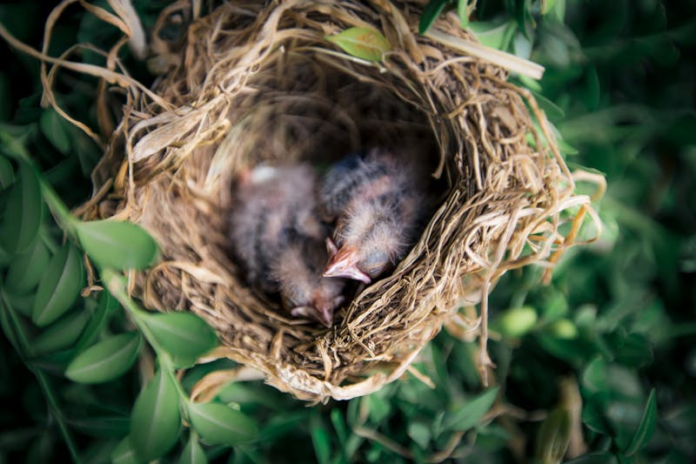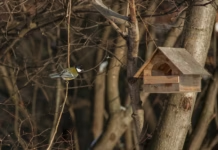Britons are being warned not to cut garden hedges during nesting season or they could be slapped with a fine.
That’s according to the experts at GardeningExpress.co.uk who are urging gardeners to avoid trimming hedges and disturbing nesting birds.
Under the Wildlife and Countryside Act 1981, a person is breaking the law if they damage or destroy a wild bird’s nest while it’s being used or built. If caught, the person can face an unlimited fine, a prison sentence or both.
With a decline in many native birds including the Song Thrush, Skylark, Lapwing and House Sparrow, the experts are asking nature loving Britons to protect the species in their gardens.
Nesting season runs between March to September with birds including sparrows, blue tits and blackbirds building nests in garden hedges to raise their young.
Cutting and trimming back hedges during this time can potentially destroy nests leaving chicks vulnerable to predators.
Leaving hedges undisturbed during this time will allow birds to thrive and play an important role in controlling pests, pollinating plants and spreading seeds in the garden.
If gardeners do want to cut back hedges, the experts are urging them to check first to make sure there are no nesting birds.
Signs of a nest include birds flying in and out of the hedge and nest building materials including twigs and leaves lying around.
Chris Bonnett from GardeningExpress.co.uk said: “The bird population in the UK is declining so protecting the native species in our garden has never been more important.
“Now is key nesting time. Protecting those nests and the newly hatched chicks is vital in ensuring the longevity of the species and maintaining a balanced ecosystem in the garden.
“One of the easiest ways to do this is to simply avoid cutting garden hedges during nesting season. Nesting season runs from March to September so a cut before and after is all your hedge will need.
“If your hedge is overgrown and in desperate need of trimming, check first to make sure there are no nests or nesting birds before you start – but if you can wait, do.
Chris continued: “For gardeners wanting to attract more birds into their garden, planting a variety of hedges is a good option. The more plant species you have, the more species of bird you will attract.
“Birds do prefer to nest in a wide hedge. For birds who nest higher, add some taller species to your planting scheme.
“Spiky hedges are another consideration, providing protection from predators for birds that tend to nest closer to the ground.”

| [donate]
| Help keep news FREE for our readersSupporting your local community newspaper/online news outlet is crucial now more than ever. If you believe in independent journalism,then consider making a valuable contribution by making a one-time or monthly donation. We operate in rural areas where providing unbiased news can be challenging. |



















